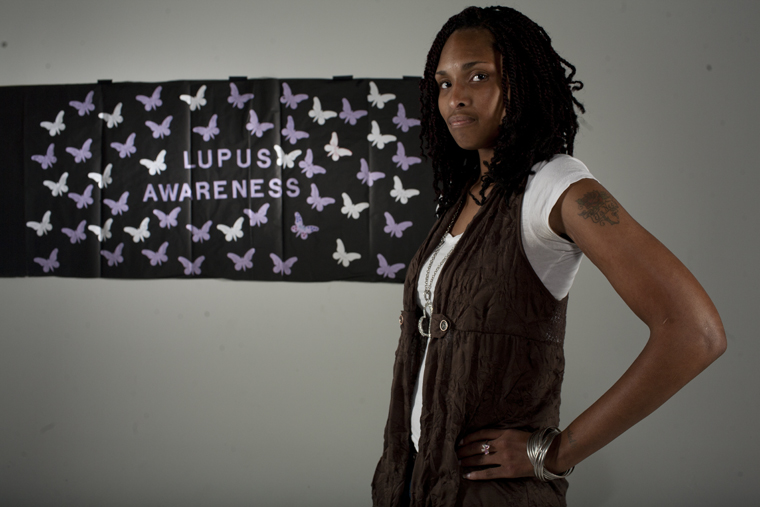Student seeks normalcy, success after battle with lupus
May 6, 2011
Thirteen years ago, JaNee Lamb woke up with skin so tight that it hurt to touch. It hurt to move. It was hard to breathe.
After already facing the challenges that come with being a teenager, the then 15-year-old Lamb was diagnosed with Systematic Lupus Erythematosus, a chronic autoimmune disease that can affect any organ of the body and often mimics other diseases.
Lupus often harms the nervous system, heart, joints, blood vessels, liver, kidneys, skin and lungs. It’s not curable, and the medicine only helps decrease the pain, said Lamb, a senior from Elizabethtown.
She is now a 28-year-old in remission, meaning that lupus is still there, but it isn’t active.
Her remission is due to her chemotherapy for two years and a new medicine that helped build up her blood cells.
Lamb said she was “a very active person” before she was diagnosed with lupus.
“I played pewee football, baseball and was in JROTC,” she said.
Lamb’s mother, Buwanna Watkins, said she felt helpless when she found out her daughter had lupus.
“I felt like I should have been able to protect her from any type of illness, and I couldn’t help her,” Watkins said.
She said she is often overprotective and worries about her daughter. She is always trying to help her with things like moving and picking up stuff.
“She tells me I’m always trying to help her when she doesn’t need it,” Watkins said. “She can do things for herself, but for some reason I feel she can’t.”
Lamb said that she wants to be normal, but nobody is actually normal.
“I’m just different in my own way, and it tends to make me stronger,” she said.
She has gone from 130 pounds to 180 while taking 20 different medications.
Her self-esteem went down, she developed arthritis, high blood pressure, had a hip replacement and almost died when she developed lupus cerebritis, which is swelling of the cerebrum, she said.
“I’m allergic to the sun, and with all the medicine they put me on, it has affected me emotionally,” Lamb said. “I learn to deal with it.”
Lamb had to learn how to re-walk and talk because of lupus.
After suffering from memory loss, doctors decided to let her go back to school so she could regain her memory.
Lamb had to take only two classes, because lupus is triggered by stress, she said.
Radcliff freshman Capri Johnson is Lamb’s childhood friend. She didn’t know that Lamb had lupus until they were about 18 or 19.
Johnson was anxious because she didn’t know anything about it.
“I feel she deals with the pain and carries on every day like she doesn’t have it,” Johnson said. “I think she’s strong for having the disease and to have been dealing with it for a long time.”
Lamb said that lupus has affected her social and school life because she has to take fewer classes, and some of her friends don’t want her to go out of town with them out of fear that she will get out of breath and sick.
Today, Lamb has to stretch often, keep moving her body around, take her medicine, make doctor visits every three months and eat right in order to keep her lupus in remission.
“It’s better to accept it than to push it away,” Lamb said. “If you push it away, it’s always going to be there; it’s not going away.”
She said she doesn’t tell people she has lupus because she doesn’t want people to look at her or treat her differently.
Lamb plans to be a social worker after college.
“The motivation that keeps me pushing is that I want to live like everybody else lives,” she said.













